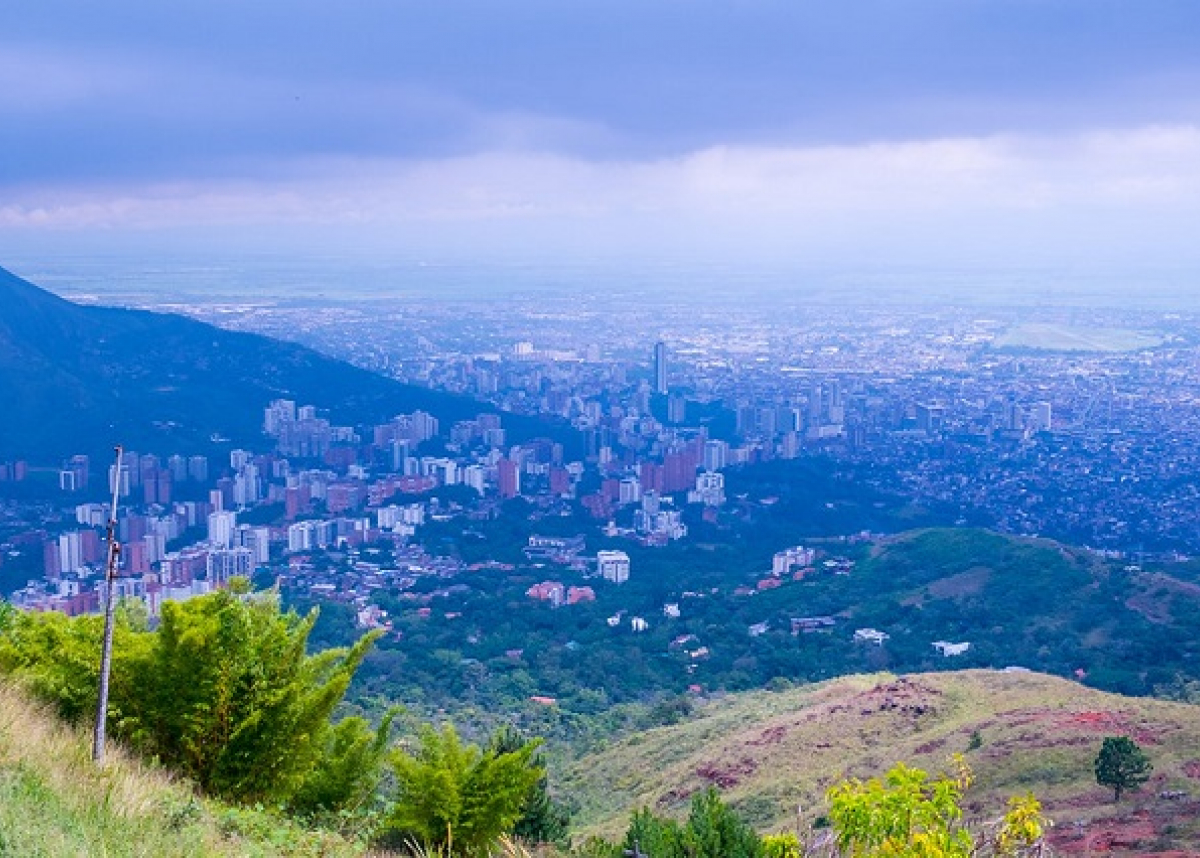
New PEAK research sheds light on green space, street usage, community action and other key drivers of wellbeing that could allow cities to chart a healthier path, reports John Surico.

On 24 and 25 September 2019, PEAK researchers Sylvia Croese from the African Centre for Cities and Santiago Mejía-Dugand from the Center for Urban and Environmental Studies (Urbam) participated in the seventh Annual International Conference on Sustainable Development, hosted by Columbia University. This year the Conference took place at the same time as the United Nations (UN) General Assembly and first Sustainable Development Goals (SDG) summit since the adoption of Agenda 2030 in 2015.
With only ten more years to go, most of the world is not on track to meet many of the SDGs and their related targets, such as ending poverty by 2030 or combating climate change and its impacts, according to the UN. The SDG summit followed the Climate Action Summit, which included an impassioned speech by youth climate activist Greta Thunberg, who has galvanised public outcry around the climate crisis, and the new damning evidence on rising sea levels presented by the Intergovernmental Panel on Climate Change. An important message coming out of this is the need to promote new leaderships in order to advance climate action and to abandon old, ineffective worldviews and discourage harmful political biases.
However, the actions presented by Heads of State at the global summits to address the crisis did not reflect the urgency of these calls. Instead it was clear that developing nations and local governments, rather than national governments and large emitters in most of the developed world, seem to be better equipped to deal with complex problems such as climate change. Nevertheless, the SDG Summit concluded with a collective pledge to make the coming decade “one of action and delivery for sustainable development” and to “do more and faster” by committing to mobilize adequate and well directed funding, enhance partnerships and harness science, technology and innovation.
The role of science was also highlighted in the 2019 Global Sustainable Development Report The future is now: science for achieving sustainable development, prepared by an independent group of fifteen scientists from different backgrounds, disciplines and institutions. The report adopts a systems approach to development, arguing that it is only by addressing the interlinkages between the various dimensions of sustainable development that transformative change can be achieved. The report calls on universities, policymakers and research funders to ‘scale up support to mission-oriented research, guided by the 2030 Agenda […] with simultaneous strengthening of the science-policy-society interface’.
This call underpins the PEAK Urban Programme, which aims to create and share new knowledge for sustainable cities. The International Conference on Sustainable Development is an ideal place and time to present research conducted as part of this programme. We both presented as part of parallel sessions on stakeholder and community engagement for sustainable urban change. Other sessions focused on sharing good practices related to the implementation SDGs, ranging from the role of national and transnational knowledge cooperation in the implementation of the SDGs; indigenous approaches to sustainable development; and good practices in climate change mitigation, adaptation, and resilience.
Throughout the conference there was a special focus on the role of higher education in accelerating SDG implementation, and pedagogy and delivery methods for sustainability education and training. Research methods highlighted the need for partnerships and whole-of-society engagement and stakeholder and community engagement for sustainable urban change through participatory action and trans-disciplinary research methods to strengthen the research-policy interface.
Aromar Revi, Director of the Indian Institute for Human Settlements, which is also part of PEAK Urban, presented as part of a panel on culture, cities and communities and spoke of the need for new science, new forms of practice, collective action and solidarity to achieve the promise of the SDGS to leave no one and no place behind. According to him, our institutions are designed in silos, and the task at hand is to enable connections between them, as well as from the local to the global level. In doing so, we need to acknowledge that most people have not even heard about SDGs, so scientists and decision-makers have to be pragmatic and take advantage of the naturally-occurring sense that communities have about what needs to be done.
Other speakers highlighted the large inequity in science, and the fact that the most complete data can be found in countries that are doing well. Many countries still have poor data collecting and reporting systems and fewer opportunities to train and support scientists. We heard that there is a deep need to not only promote climate science, but also wider development science and actual scientific practices: societies and communities need to learn how to define their local problems and formulate hypotheses. This is particularly important for grassroot initiatives to implement the SGDs.
Taken together, the conference illustrated an important tipping point in the current moment in history between the science and the politics of sustainable development. While politicians remain too often disconnected and ambivalent in their actions, scientists and society are taking the lead in building a bridge to bring science and political action together.